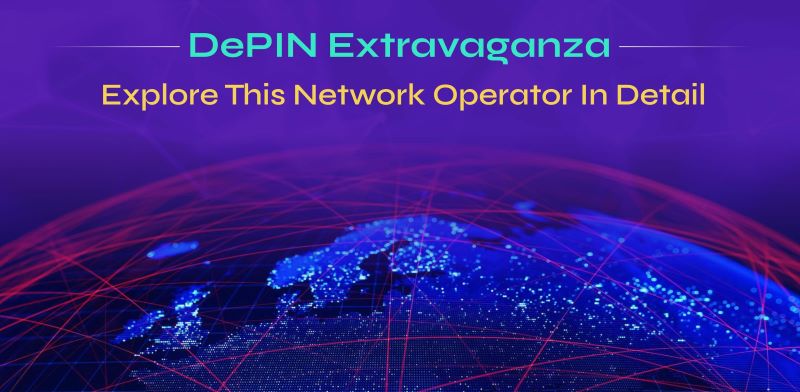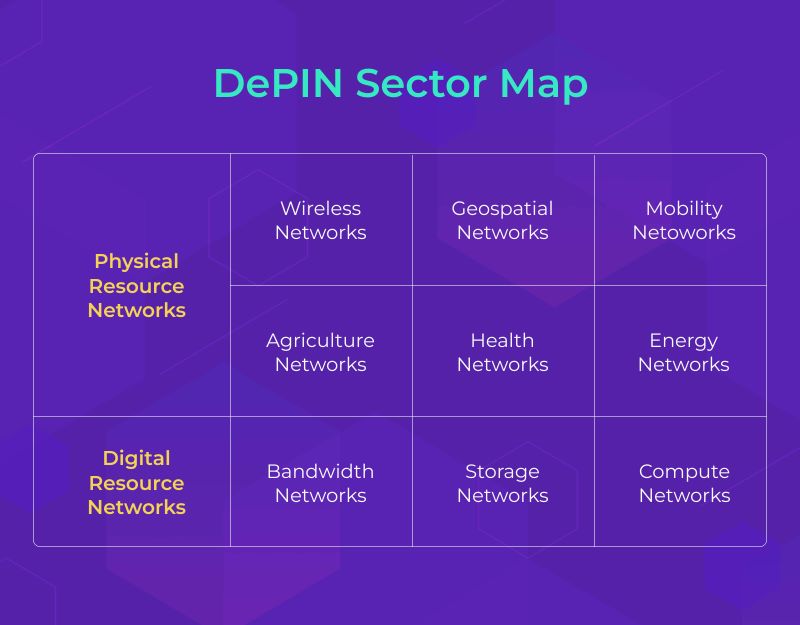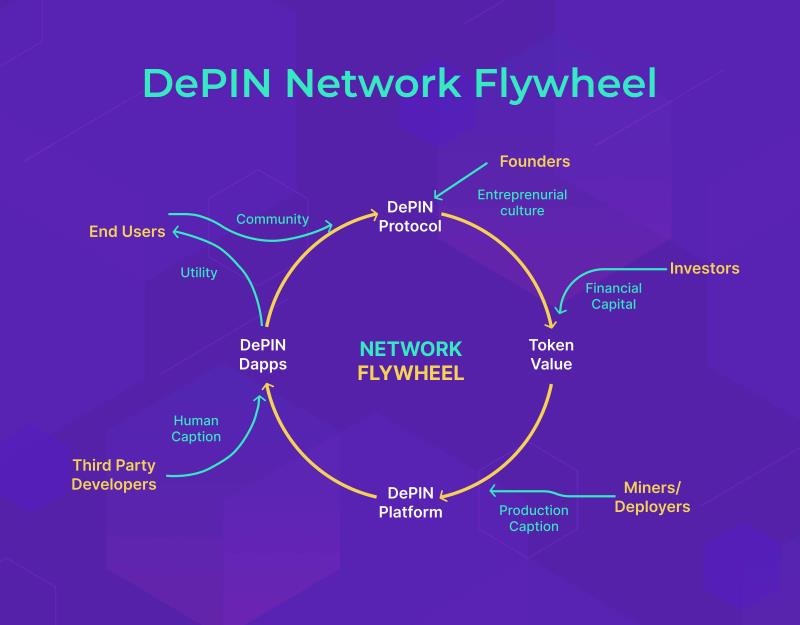Discover the future of infrastructure with DePIN network protocols! These decentralized systems leverage blockchain to transform traditional infrastructure, offering enhanced security, efficiency, and scalability. Dive into the world of DePIN and explore how it revolutionizes sectors like energy, telecommunications, and data storage.
What is DePIN network protocols?
DEPIN, short for Decentralized Public Infrastructure Network, is a groundbreaking protocol harnessing tokens to incentivize individuals to collaboratively construct and interconnect tangible physical infrastructure. This revolutionary concept aims to elevate essential services for conventional centralized communities, fostering advancement and efficacy.

By integrating blockchain technology, it facilitates peer-to-peer transactions and communications, eliminating reliance on intermediaries. This paradigm shift enhances efficiency, transparency, and resilience, fortifying against disruptions. In essence, DEPIN revolutionizes public sector delivery and access, empowering communities to oversee and enhance their infrastructure. This innovative approach holds promise for transforming public-funded projects into sustainable and inclusive infrastructure endeavors.
Role of Decentralization in DePIN
Decentralization plays a pivotal role in DePIN by engaging a diverse array of stakeholders, such as government agencies, private investors, and local communities, in public infrastructure development projects. Through decentralized physical infrastructure networks, all transactions are securely recorded in the immutable ledgers of blockchain technology, instilling trust and transparency.
This approach mitigates corruption and mismanagement, enhancing efficiency, cost-effectiveness, and overall advancement. By leveraging decentralized systems, DePIN facilitates collaborative and sustainable solutions for public infrastructure projects.
Decentralized Physical Infrastructure Networks in Crypto
Decentralized Physical Infrastructure Networks, or DePIN, represent crowd-sourced service providers offering real-world solutions to users, rewarding them with cryptocurrencies on compatible blockchain networks. Immutable ledgers within these networks facilitate remittance record-keeping and administration, enabling individuals to offer their services until resource thresholds are met. This ensures transparent transaction recording on the blockchain. DePIN’s versatility extends across various sectors, from crowd-sourced geographical services to the establishment of advanced infrastructural marketplaces, all managed through blockchain technology.

Different Categories of DePIN
| Category | Description | Characteristics |
| Physical Resource Networks | These networks provide localized services such as hardware connectivity, mobility, and energy. Services are non-fungible, location-based, and non-portable. | – Location-based – Non-fungible – Non-portable |
| Digital Resource Networks | These networks offer fungible resources like computing power, shared bandwidth, and storage facilities. Resources are not tied to specific locations or data. | – Fungible – Not location-dependent – Digital resources |
These categories delineate the distinct types of DePIN networks based on the nature of resources they provide and their characteristics.
Advantages of DEPINs
Consensus and Protocol
Blockchain seamlessly integrates with DEPINs, aligning with established protocols governing peer-to-peer networks. Consensus mechanisms play a crucial role in enabling network participation and validating network states in a trustless manner.
Tokenomics
Blockchain protocols inherently incentivize participation and positive behavior. Each participant in the blockchain network possesses their proprietary crypto token, simplifying token creation. DEPINs leverage this incentivization mechanism based on user engagement and contribution to the network.
Accessibility and Affordability
DEPINs streamline the process of building online services with reduced upfront investments. Leveraging crowdsourcing and a peer-to-peer infrastructure model, DEPINs simplify equipment sourcing, resource development, and infrastructure building. These models are transparent and permissionless, enabling individual contributions from all participants.

DEPINs offer a transformative approach to infrastructure development, leveraging blockchain technology to foster transparency, incentivize participation, and streamline accessibility. With consensus mechanisms ensuring trustless network governance and tokenomics incentivizing positive contributions, DEPINs empower individuals to actively engage in building and enhancing infrastructure.
Moreover, their accessibility and affordability make them an attractive option for sustainable, community-driven projects. As we embrace the potential of DEPINs, let’s seize the opportunity to contribute to a more inclusive and resilient future. Take action now and explore how you can get involved in the DEPIN movement!
Take the next step towards optimized operations and sustainable practices with Forex Trend News today!

